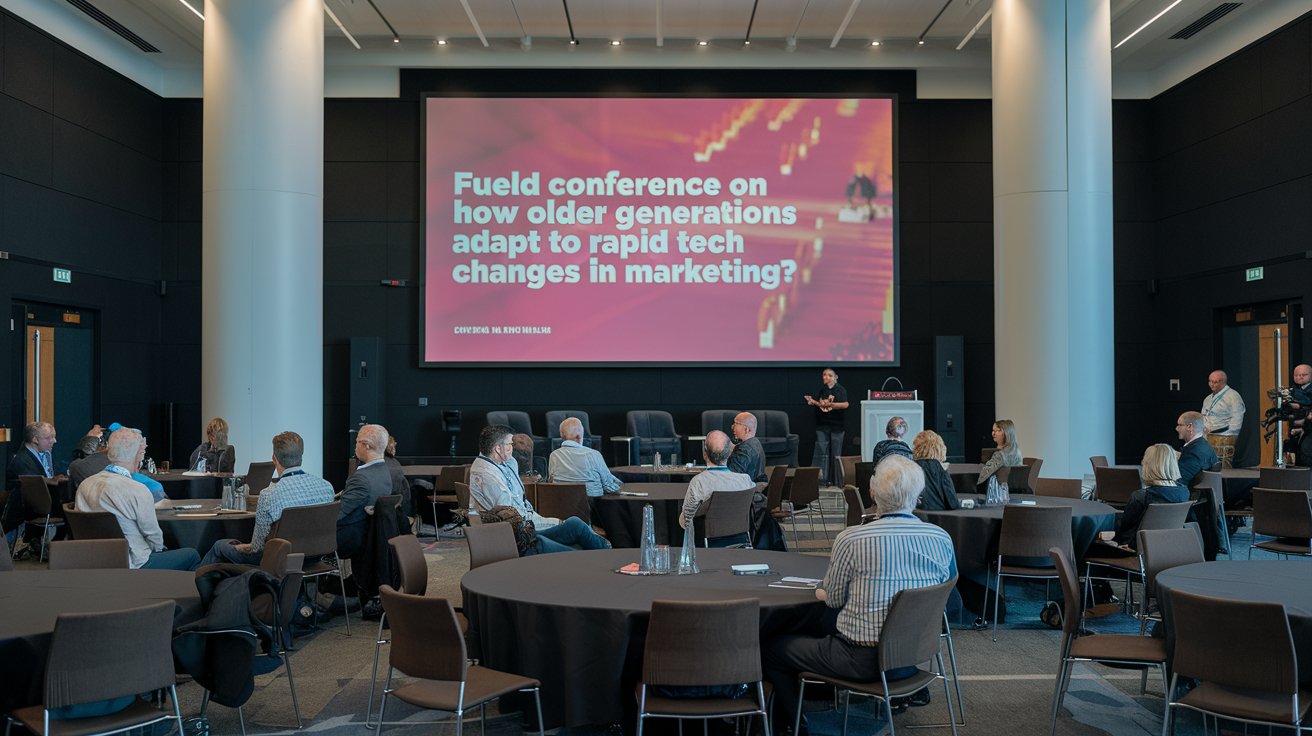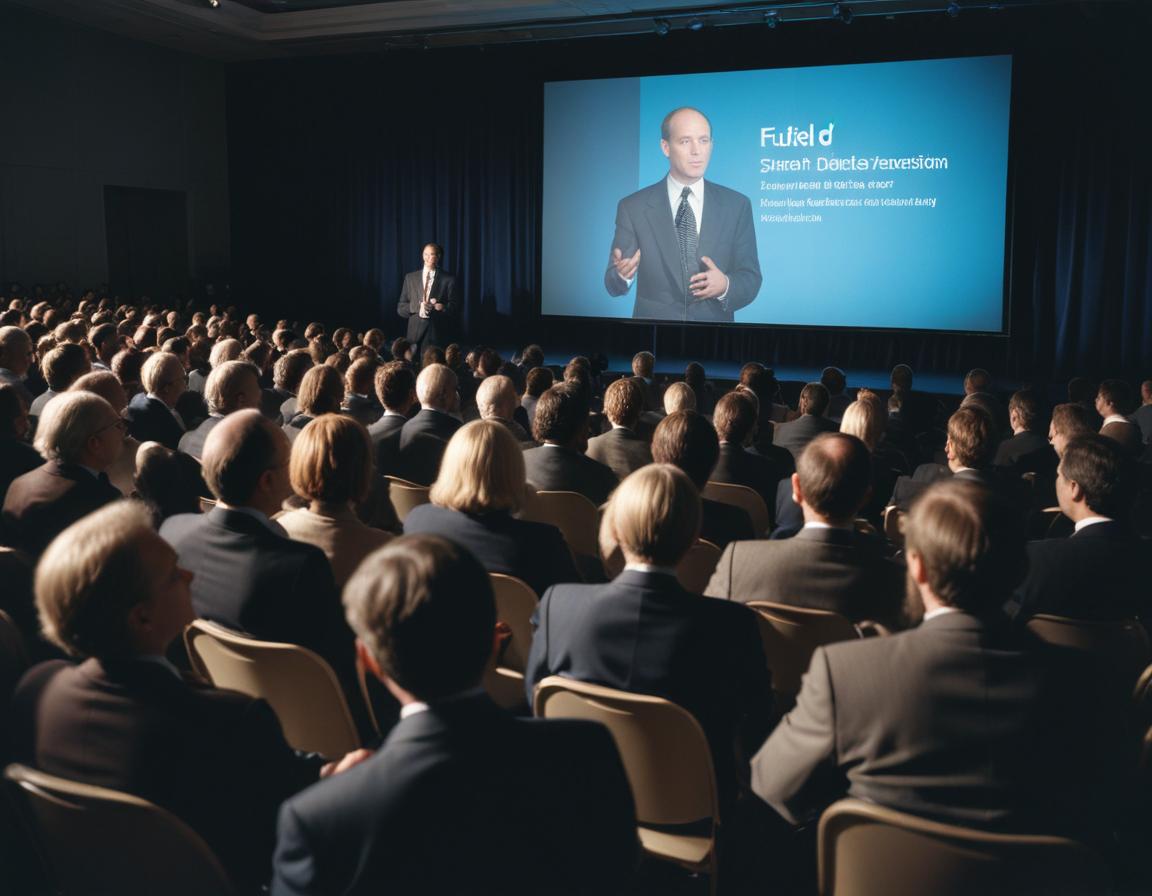FUELD Conference Highlights The Growing Impact Of Deepfakes On Digital Trust

Strong 8k brings an ultra-HD IPTV experience to your living room and your pocket.
Before you trust that viral video, think again. That politician’s speech? That celebrity scandal? That emotional plea? It could all be fake. And you would never know.
Deepfake technology is making it harder to separate truth from lies. With artificial intelligence creating compelling fake videos and voices, misinformation spreads faster. A political leader could be framed. A company’s stock could crash. A scammer could steal millions—all with a single deepfake.
The best way to stay ahead? Attending the FUELD Conference, one of the upcoming tech events, can help you learn about the latest tools to detect and combat digital deception. Experts are revealing new ways to fight back against artificial intelligence-powered fakes. Let’s explore how deepfakes work, their risks, and what is being done to stop them.
Understanding Deepfake Technology
The ability to manipulate reality has never been more effortless. With AI-driven deepfake technology, fake videos and voice recordings can mimic real individuals with near-perfect precision. What started as a tool for entertainment has evolved into a technology that can deceive, mislead, and even manipulate public opinion. But how does it work? Understanding the mechanics behind deepfakes is crucial to recognizing their potential risks and benefits.
How Does It Work?
Deepfake technology uses Generative Adversarial Networks (GANs), where one AI model creates fake content while another detects flaws. Through continuous learning, the fake becomes more convincing over time. By analyzing facial expressions, speech patterns, and micro-expressions, deepfake algorithms replicate real people with alarming accuracy. What once required high-end technology is now accessible to anyone through artificial-intelligence-powered apps, making digital manipulation easier than ever.
Key Applications Of Deepfakes
Not all deepfakes are used for deception. Some industries have found creative ways to leverage this technology.
Hollywood is resurrecting actors and de-aging celebrities. The late Carrie Fisher appeared in Star Wars, and Robert De Niro was digitally de-aged in The Irishman.
Educators are using deepfakes for interactive history lessons. Imagine watching a lifelike Abraham Lincoln deliver the Gettysburg Address in a virtual classroom.
Marketing teams are replacing traditional influencers with AI-generated personalities. Some brands now use virtual models that never age and demand high salaries.
Cybercriminals are scamming businesses through deepfake video calls. A Hong Kong bank lost $35 million after fraudsters impersonated a top executive.
Misinformation campaigns are using deepfakes to sway public opinion. A fake video of Ukraine’s President Volodymyr Zelenskyy falsely announcing surrender during wartime spread online before being debunked.
The Threats And Ethical Concerns Of Deepfakes
Deepfake technology is more than just an internet trend. It fuels misinformation, cybercrime, and security threats. From political manipulation to financial fraud, its dangers are growing fast. Tech and marketing events in USA bring experts together to explore solutions like detection tools and digital verification. Staying informed is key to tackling this threat.
Misinformation And Disinformation
Deepfakes are turning deception into an art form.
Fake videos are being weaponized in politics. During elections, deepfakes of politicians making false statements have been used to mislead voters.
News organizations are struggling to separate truth from manipulation. By the time a deepfake is debunked, the damage is already done.
Social media is an amplifier for deepfake propaganda. Fake videos spread like wildfire before fact-checkers can intervene, creating confusion and division.
Cybercrime And Identity Theft
Deepfake technology is fueling a new wave of cybercrime, making scams more convincing than ever.
Criminals are impersonating executives and scamming companies. In one case, fraudsters cloned a CEO’s voice and tricked an employee into wiring funds.
Identity theft is now more advanced than ever. Scammers are creating deepfake videos to apply for loans, steal personal data, and manipulate loved ones.
Phishing attacks are becoming terrifyingly sophisticated. Imagine getting a video message from your boss asking you to reset a company password. Would you question it?
Psychological And Social Impact
Deepfakes are eroding public trust in digital content.
People are second-guessing everything they see online. The phrase “seeing is believing” no longer applies in the digital age.
Victims of non-consensual deepfake videos are facing severe harassment. AI-generated explicit videos featuring real people have led to reputational damage and emotional distress.
Even real videos are being dismissed as fake. This "liar’s dividend" allows bad actors to claim that authentic footage is manipulated, further confusing the public.
Can We Detect & Combat Deepfakes?
As deepfakes become more advanced, spotting fakes is no longer easy. Experts are creating detection tools, but deepfake creators keep finding ways to outsmart them. The battle between deception and detection continues. Can technology keep up, or will deepfakes become unstoppable?
Current Deepfake Detection Techniques
Technology is fighting back, but the battle is far from over.
Artificial intelligence-powered forensic tools are scanning videos for manipulation. These tools analyze inconsistencies in pixels, lighting, and facial movements.
Blockchain technology is being explored to verify original content. By tracking digital fingerprints, blockchain can authenticate legitimate videos.
Social media platforms are investing in deepfake detection systems. Facebook, Twitter, and YouTube use AI to flag and remove suspicious content.
The Role Of Digital Literacy And Awareness
People need to be more thoughtful about recognizing deepfakes.
Always verify the source before trusting a viral video. Fact-checking across multiple credible sources is essential.
Look for common deepfake flaws. Unnatural blinking, robotic speech, and inconsistent lighting are red flags.
Think before sharing suspicious content. Misinformation spreads because people fail to question what they see.
Staying informed through tech and marketing events in USA can help individuals and businesses understand the latest strategies to detect and combat deepfakes.
The Future Of Trust In The Digital World
The rise of deepfake technology is shaking the very foundation of trust in digital content. As artificial intelligence advances, distinguishing between real and fake will get more complicated. However, new solutions like artificial intelligence-powered detection tools and digital verification techniques could help restore confidence in what we see and hear online. The future of truth depends on how well society adapts to these changes.
To know more about the latest innovations in detecting digital deception, attend the FUELD Conference, a tech and marketing conference in USA. Experts will discuss cutting-edge strategies to combat deepfakes and protect digital trust.
Conclusion
Deepfake technology is advancing fast, making deception harder to detect. From financial fraud to political manipulation, the risks are real and growing. Artificial intelligence can now create perfect lies that even experts struggle to spot.
Staying informed is the best way to fight back. Attending the FUELD Conference, one of the upcoming tech events, helps individuals and businesses learn about the latest detection tools. Experts share insights on how artificial intelligence can expose and prevent deepfakes. These events provide strategies to stay ahead of digital deception.
The future of truth depends on how well we adapt. The next time a video shocks you, do not just ask if it is accurate. Ask who benefits from you believing it.
Note: IndiBlogHub features both user-submitted and editorial content. We do not verify third-party contributions. Read our Disclaimer and Privacy Policyfor details.






